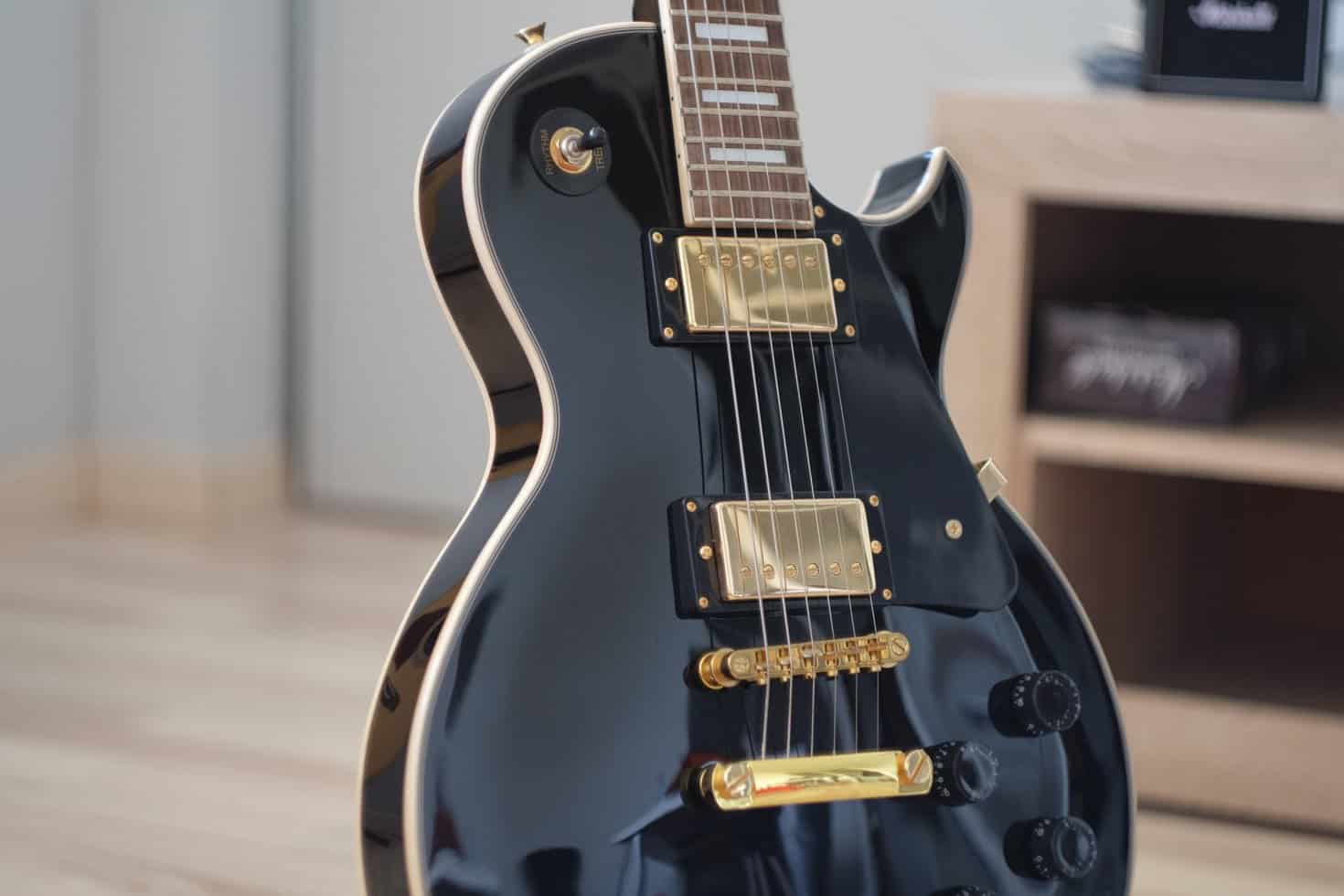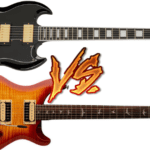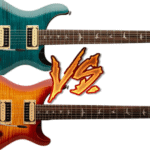The electric guitar has been popularized through the years not by the features of its many models, but by the players who chose them.
However, whether it is the chicken or the egg that came first, the thing is that nowadays, half a century later, many of us drool over classic instruments.
These vintage instruments are scarce and extremely costly.
This is why manufacturers came up with the idea of making reissues.
But what is exactly a guitar reissue? Here’s a short answer:
Guitar reissues are replicas of classic models, in many cases reproducing their every detail. Given that not all the same materials and parts are available nowadays, it’s common making some compromises, at least in mass production reissues. For more exclusive, custom shop models, features are usually matched.
In this article, I will tell you all there is to know about vintage guitar reissues and advise you on whether or not these guitars might be for you.
After leaving this page you will have a clearer idea about why manufacturers choose to bring back to life some of their most popular models.
Are you ready to get started?
Let’s go!
What is a reissue guitar?
A reissue guitar is the replica of a popular vintage model a brand produced years ago, and due to high demand is putting it back on sale.
In many cases, these reissue models are rather exclusive and limited runs.
This is mainly because, although the models reissued are usually the most popular, this is still a rather small niche preferred by intermediate to advanced players.
It’s unlikely, and even not recommended, for a beginner to get some of these instruments.
Are reissue guitars custom shop?
In many cases, reissue guitar models are built by the best builders at the disposal of the brands making them, makers that usually work in the custom shop.
However, reissue and custom shop are not necessarily a synonym.
In fact, many custom shops, such as Fender’s usually build instruments with vintage specs, but that hardly can be described as a reissue, since most are one-offs.
Reissues are usually produced in quantity, with varying qualities, but in the vast majority of cases, they are professional instruments.
Do reissue guitars sound like vintage ones?
Most brands try their best to make reissues sound as close to original vintage instruments as possible.
This can only be achieved by replicating every feature and detail of the old instruments.
Many builders go as deep as getting vintage old stock materials such as coil wire to make their pickups.
The problem that many purists will mention when referring to this matter is that time is a variable very hard to fake.
From the quality of the tonewoods available 50 years ago compared to the actual ones, to the effect half a century of use and exposure to the elements could have had on those woods, some things are almost impossible to replicate.
Are reissue guitars better than the ones from standard lines?
Reissue guitars are not necessarily better than the ones from standard lines, and even for some players, they could be worse.
It all depends on your preferences and the sound you are looking for.
A player looking for a modern tone will hate a 60s reissue and vice versa.
Another big factor to take into consideration is that with the years there has been some quality of life improvements to the average guitar such as tuners, frets, and neck shapes, that deemed the instrument easier to play and more beginner-friendly.
Historic reissues if done properly will not come with such “upgrades”.
Quality-wise, however, and as mentioned earlier, reissues are usually on the upper echelon.
What are the drawbacks of guitar reissues?
The main drawback of guitar reissues is that they come with features original to their period that many modern players would probably not prefer.
Also, since they are sort of a niche offering, they usually come at steep prices.
Of course, these drawbacks are also why their buyers look for them, and this is a case where what’s gold for someone might be trash for others.
Why are reissue guitars so expensive?
Making a reissue of a classical model requires a lot of expertise and dedication to sourcing the materials and components required that are likely not easily available.
This increased basic cost makes these instruments fit for the premium segment, a market niche where players mostly demand American instruments since they are perceived as of higher quality.
It’s natural then when adding up hard-to-find materials and parts, with the high labor cost of US guitar builders, that vintage guitar reissues end up with an exorbitant price tag.
Do reissue guitars preserve their value over time?
Since reissue versions of classic guitars are usually made for limited runs, they are likely to become a rarity and something collectors look for with time.
However, their market is reduced, since more wealthy enthusiasts will likely try to go for the vintage real deal, and beginners or more modern players might prefer models from the more actual lines currently in production.
A good guitar is a good guitar anyway, and reissues are almost certain to be so and their value over time will surely keep reflecting this.
Should you get a reissue guitar?
You should absolutely go get a reissue guitar if you are a lover of the vintage sound.
However, if you have only been exposed to more modern instruments during your bringing up as a guitarist, I would recommend you try out some guitars with vintage specs before taking the leap.
You will probably love them, but there’s also the chance you will end up hating them.
And there’s nothing wrong with loathing the playability of vintage instruments.
What’s absolutely bad is spending thousands of dollars on a guitar you end up not loving at all.

Hello there, my name is Ramiro and I’ve been playing guitar for almost 20 years. I’m obsessed with everything gear-related and I thought it might be worth sharing it. From guitars, pedals, amps, and synths to studio gear and production tips, I hope you find what I post here useful, and I’ll try my best to keep it entertaining also.





